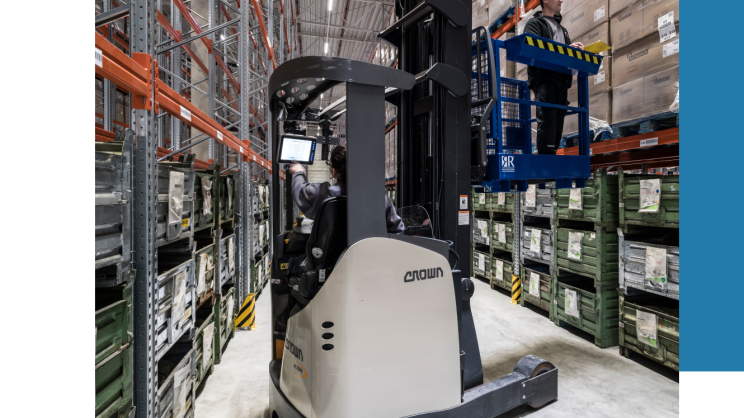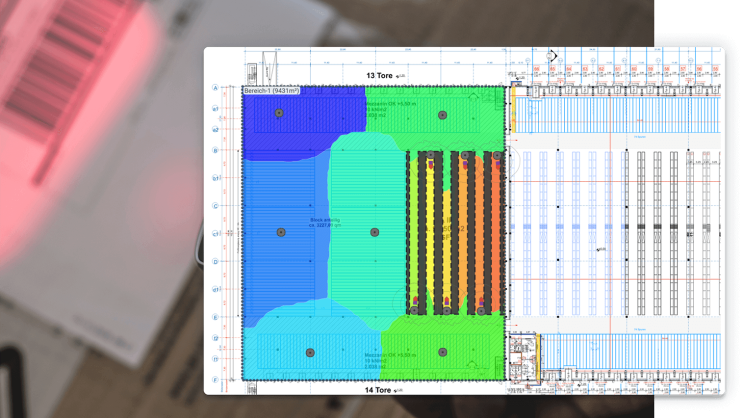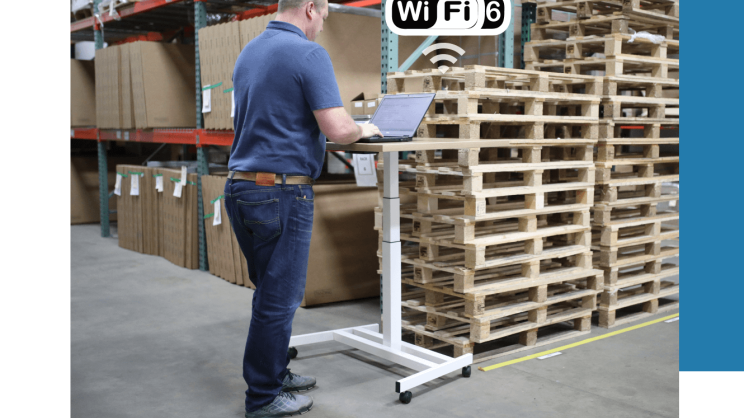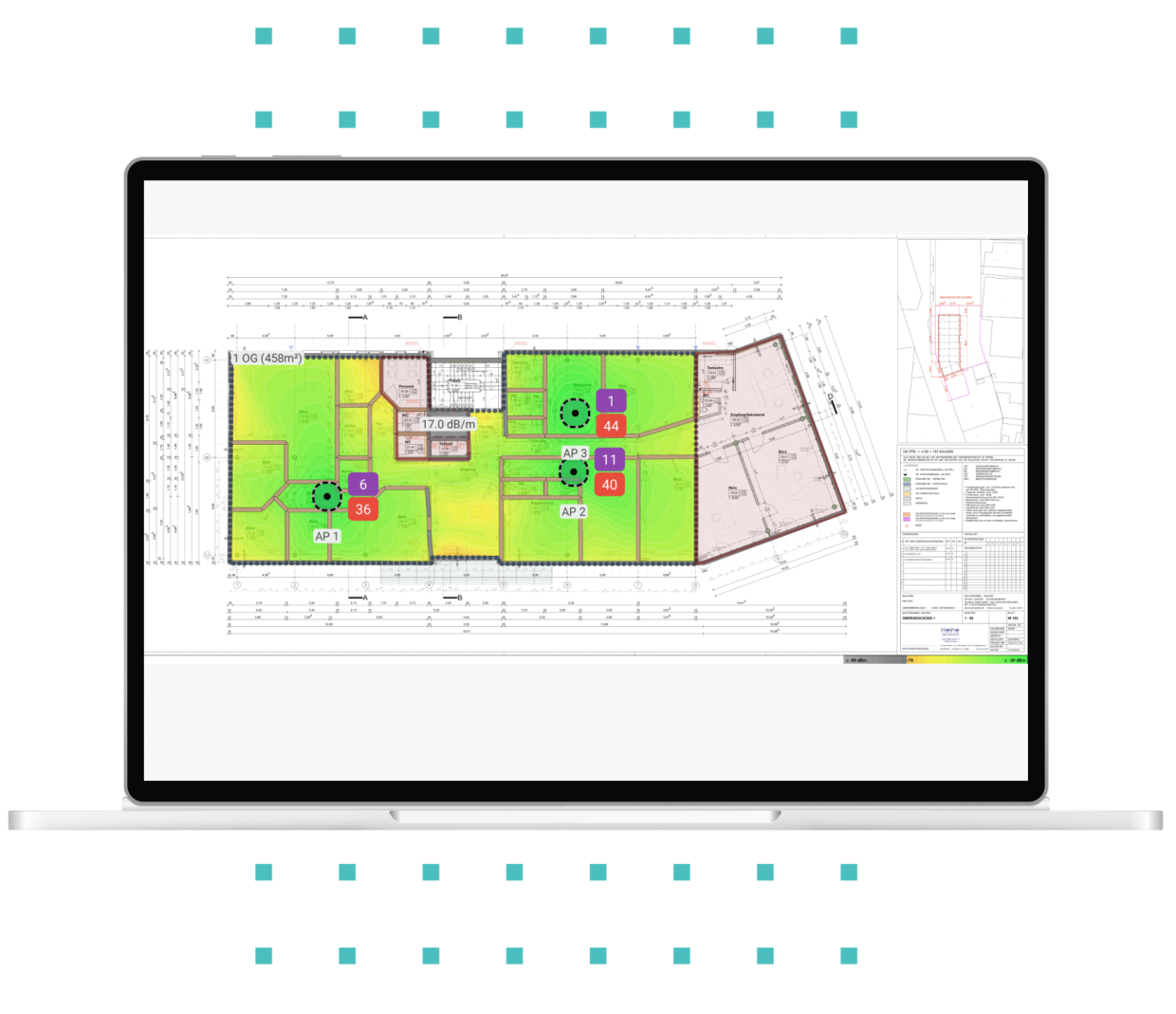Frequently asked questions
The only good network is a fully functional WiFi network. That requires careful planning, including surveying or simulation. This saves companies a lot of "clean-up" work because it avoids problems and disruptions from the start. Companies should always ask what tools a service provider uses and why it uses them before awarding a contract. In our case, we rely on Ekahau, a world-leading provider of tools for simulating and designing WiFi networks. Companies shouldn't think about hardware at a consumer scale. Almost everyone has a WiFi network at home and knows that cheap devices work reasonably well for personal use. In business, however, you also have to consider performance, security and support. It may be tempting to buy the cheapest hardware, but that can backfire if, for example, its firmware stops being updated and thus develops security holes. We therefore recommend the following: Ask critical questions, demand plausible explanations of proposals and processes, have technical jargon translated and do not let yourself be brushed off with vague reassurances.
When setting up WLAN, we always take into account the weakest devices in the company, such as mobile handheld scanners with low transmission power. We adapt the access points accordingly to ensure a reliable connection and enable smooth roaming. Clients decide for themselves when to switch access points based on defined thresholds. The supported security protocols and frequencies of the clients also influence the WLAN configuration.
As everywhere, this market contains cheap products, a large midfield and some exceptional providers. We consider the technical specifications required for the concrete use case and then make recommendations in our consultation. At the same time, like all reputable suppliers, we will also base our choice of equipment on our customers' preferences. One of the vendors we regularly recommend is LANCOM. This is a German company that follows very strict data protection regulations. These devices have no backdoors that can be used to disable security functions, eliminating a significant weak point for hackers to exploit. This is one reason why these access points are allowed to be used in deliberative bodies such as state parliaments. LANCOM was also the first company to implement WPA3 encryption in its devices and thus blazed a trail for other vendors to follow. We also use Ubiquiti equipment for smaller WiFi installations and situations requiring lower-cost solutions.



